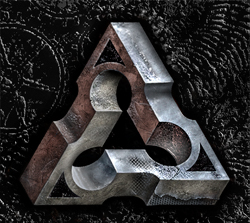Ask Guy 25
Q) So I went in to try to apply for a tattoo apprenticeship, and basically they told me that flamer like me has no place in the tattoo industry and would never be able to break in. They were the only tattoo studio within a four hour drive of me that even offered tattoo apprenticeships and now I've got no clue where to go from here. Am I basically bashing my head against a brick wall? Give it to me straight, am I a fool for trying to pursue this? I got a fucking degree in fine arts, I do photo realistic oil paintings, I can do really high quality realistic watercolor. Is how "cool" and butch you are really so much more important that how good of an artist you are?
A) Excellent question my friend! There's an elephant in the tattoo shop here, and its name is Homophobia. And of course this isn't just a tattoo thing... but tattooing is a relatively macho industry, so you'll see perhaps a bit more of it than elsewhere. You're basically experiencing the same thing that women went through a couple decades ago- a general discomfort on the part of the established artists to let in any different kind of energy to the shop. Now, of course, there are plenty of women in the industry- including some openly gay ones (although men aren't threatened by lesbians, so that was never really a big deal). So what will it take to break through this wall?
Funny thing is, there's a notable precedent that many have already forgotten: The late great Cliff Raven of Chicago. Cliff was one of the few artists who stuck around in Illinois after the age limit for tattooing changed from 18 to 21 back in the late 1960s. He was already enough of an artistic heavyweight that this didn't hurt his business; rather, he redirected his efforts toward large custom work. For that period, with the exception of Sailor Jerry in Hawaii, Cliff was one of the few American artists who specialized in those kind of large multi-day bodywork projects, and collectors traveled from all over to see him.
For most of his career, Cliff was open about his sexuality. Of course there were people who had issues with this, but it didn't prevent him from having a stellar career, and from making large advances not only in the artistic elements of tattooing but also in peripheral things like creating a tranquil environment for the client, handling them in a less aggressive/more therapeutic manner, that kind of thing... he was a pioneer in doing the large custom work, and his influence has trickled down through the generations. I learned to tattoo from Bob Oslon, who was one of Cliff's apprentices and had nothing but positive things to say about working with him. Bob talked about how the other Chicago tattooers used to rag on him about his gay boss- "hey, waddya have to do to get that job?" and the other obvious quips... but it was still the best shop in Chicago to work at.
So what happened? Where are the gay tattooers now? Well, they are all over the place, and working in the closet. Why? Good question. I believe the industry is more than ready to deal with this issue- in my opinion, all it will take is one really good gay male tattooer getting stuff published in magazines, someone good enough that collectors want his work regardless of any sexuality issues. That will open the door and the big change will happen quickly after that, same as when Kari Barba started publishing her amazing painterly work back in the mid 1980s and women everywhere realized that they could do it too... as well as collectors everywhere realizing they could happily wear work done by a woman.
So maybe you need to be that first really good openly gay male tattooer. The shop you talked to- obviously the wrong environment for you to work in. You will most likely need to do a lot of networking and be willing to relocate in order to find the right shop environment, but if your artistic cred is anything like you say, you'll find a place. It won't be convenient, but I like to remind apprentice hopefuls that most careers with tattooing's financial prospects involve having to relocate and go to Harvard for 6 years before embarking on two decades of paying back a student loan. So if all you have to do is move across the continent to get into the right shop, it's worth it. Get your portfolio together, make it short and concise, keep it up to date, write out a cover letter stating who you are and why you think you'll make a great tattooer. Be prepared for an uphill climb. But you'll find the right shop, and then you can be a part of the inevitable change that will come. Good luck!























